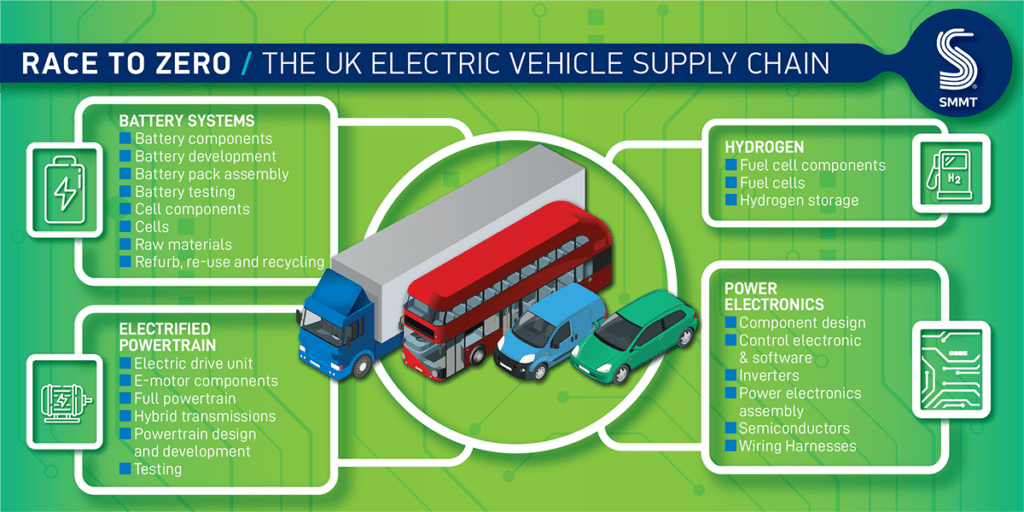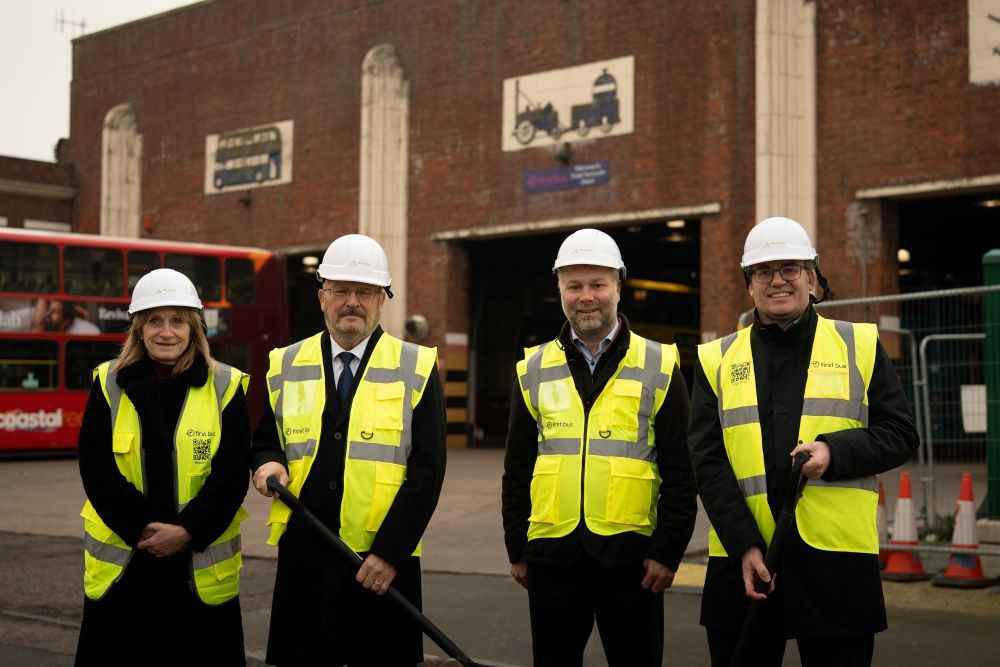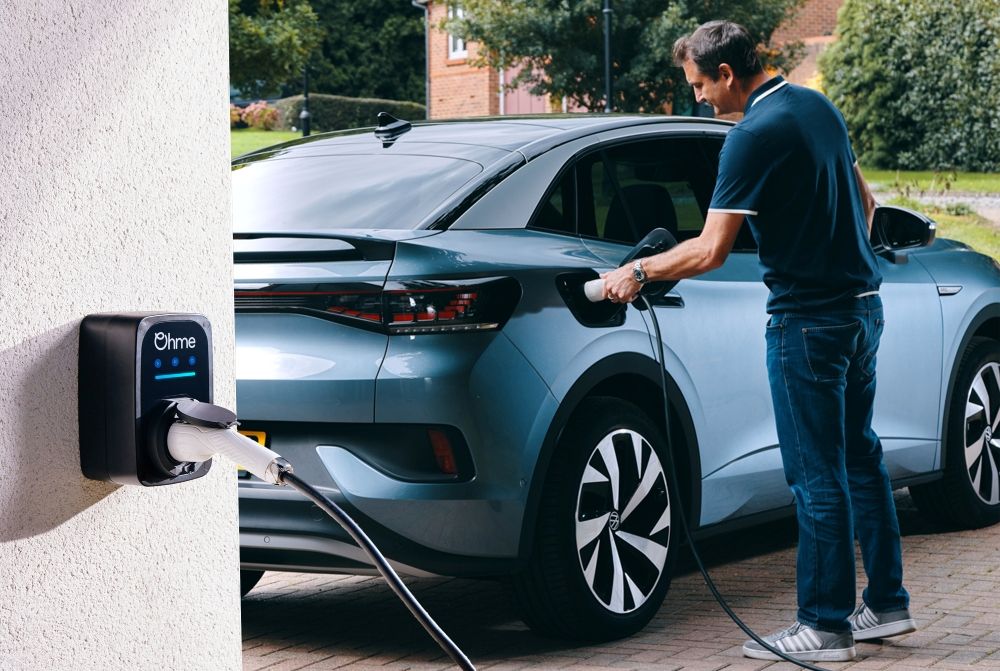Britain’s ability to compete as an EV production leader is at risk unless government responds to international competition, the Society of Motor Manufacturers and Traders (SMMT) has warned.
The call, which comes in the SMMT’s report Race to Zero: Powering Up Britain’s EV Supply Chain, sets out how the UK government has to respond to initiatives such as the US $370bn Inflation Reduction Act and EU Green Deal Industrial Plan.
It sets out how a Green Automotive Transformation strategy would position Britain as one of the world’s most competitive locations for advanced automotive manufacturing – matching its ambition to end the sale of non-zero emission cars and vans in 2035.
The strategy identifies investment, regulation and trade as the key pillars to anchor future vehicle production in Britain. It states that de-risking private capital with more competitive incentives and action on energy costs, and support for batteries and renewables, would stimulate greater investment.
Reform of regulation would also accelerate delivery of new production facilities and renewable energy generation, it said, alongside maximising trade opportunities, which would assist in secure access to essential raw materials. Such moves will secure the essential gigafactories which can underpin EV production, the SMMT claimed.
It said the UK “must act” on progress by the domestic automotive sector and supply chain, which has invested more than £11bn locally with a third of all UK-built cars either electric or hybrid last year.
There has been a 25% increase in supply chain businesses in the UK for EVs in the past five years – and the report called for the UK to scale up capability of batteries, powertrains, fuel cells, power electronics, anodes, rare earth magnets, graphene and silicon carbide wafers to meet demand. It also highlighted the role of R&D and collaboration between universities and industry on developing zero emission technology.
Mike Hawes, SMMT Chief Executive, said, “Britain boasts a firm foundation of EV production, backed by low carbon energy, outstanding R&D and a highly skilled and productive workforce. We must not squander these advantages. With other parts of the world turbocharging their support for the zero emission vehicle transition, we need to step up to compete in this global race. Every part of the country has a stake in the switch and with fast, decisive action we can deliver for Britain the growth, jobs and green prosperity this country deserves.”
Image courtesy of SMMT











